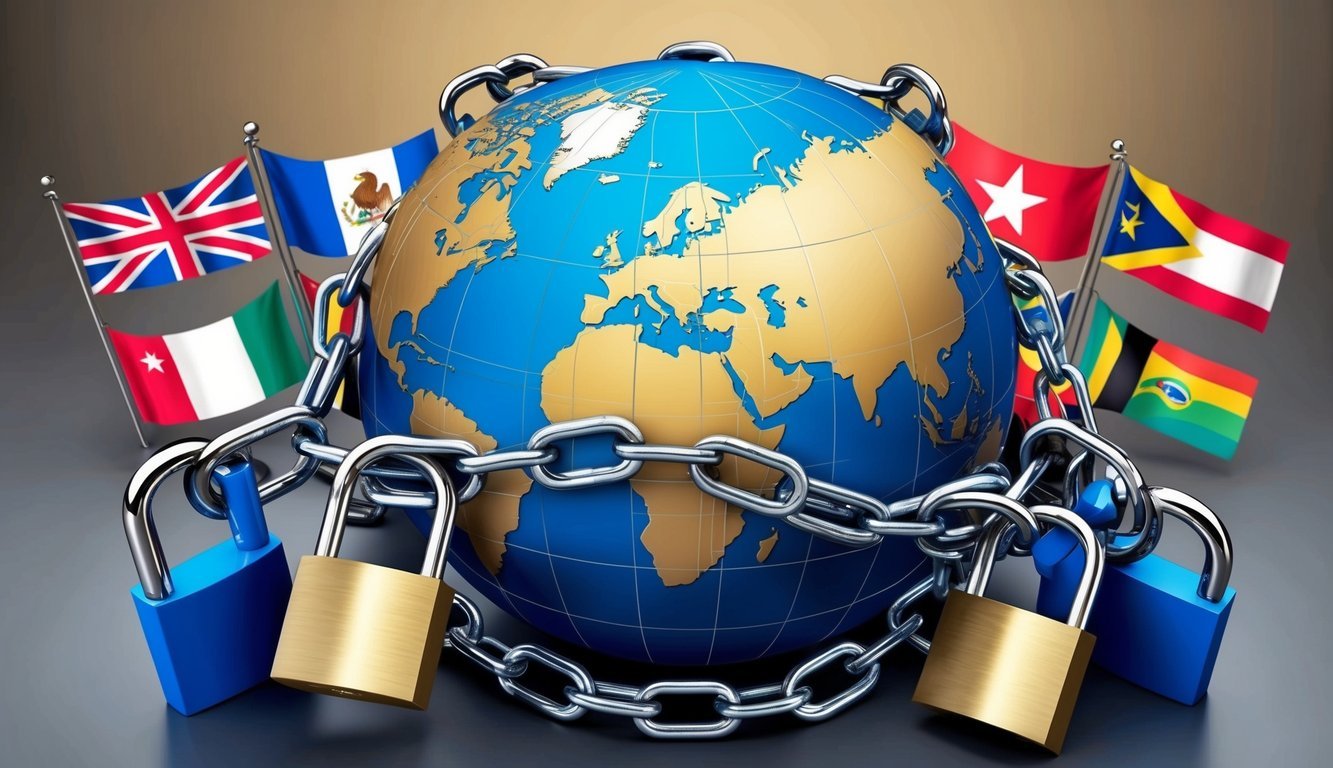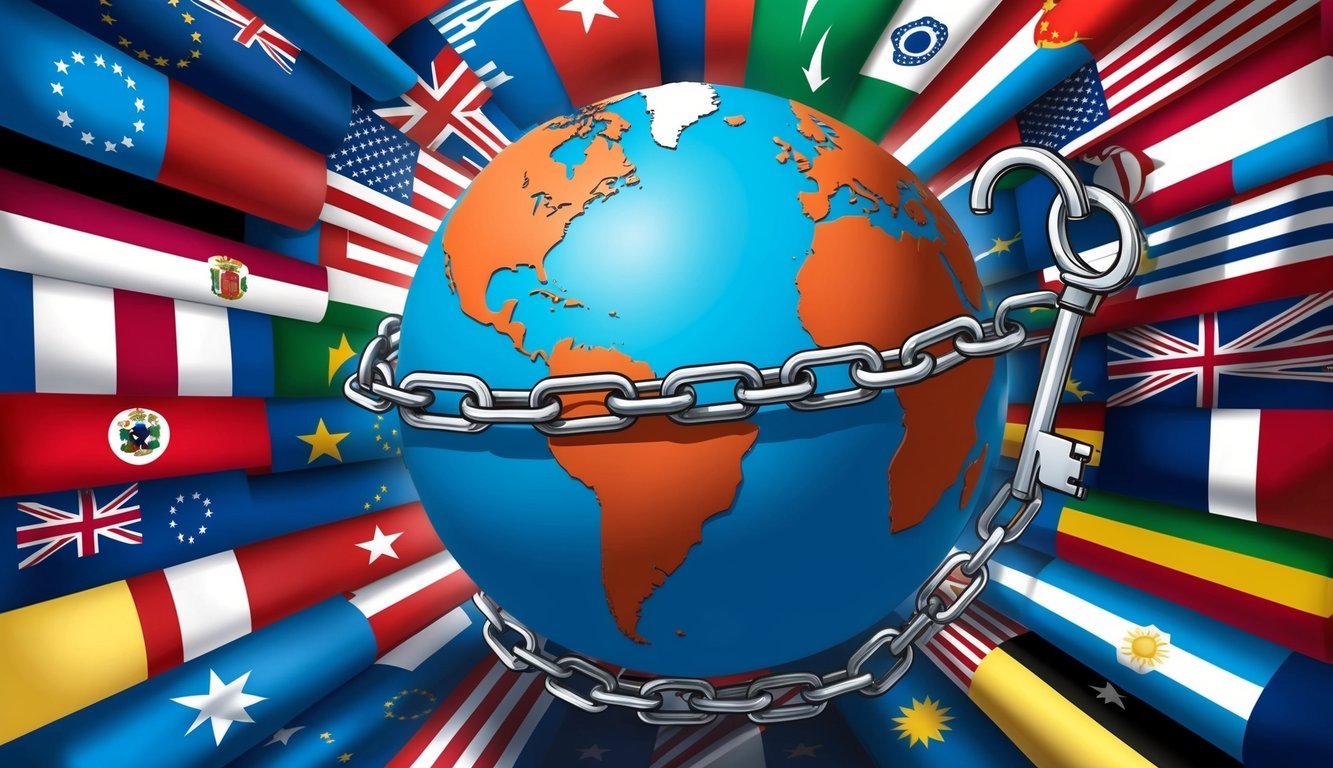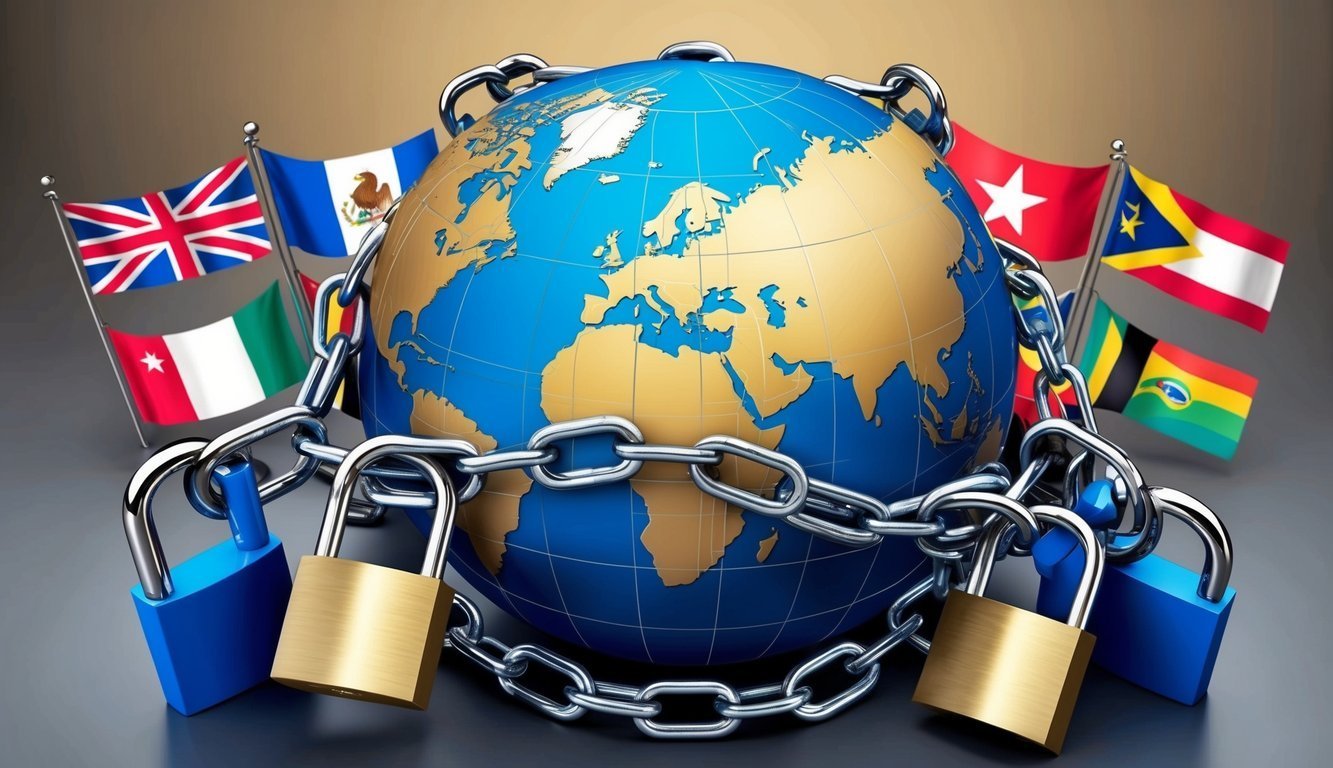Crypto rules are changing fast around the world. Many countries are working on new laws for digital money.
The International Organization of Securities Commissions has suggested 18 ideas for global crypto rules.

You might wonder why this matters. Well, clear rules can help keep your money safe and stop bad guys from using crypto for crimes. They can also make it easier for you to use digital coins in different countries.
Some places are moving faster than others. For example, Brazil just made it legal to use crypto as money. Other countries are still figuring things out. It’s an exciting time for crypto, and the rules will keep changing as we learn more.
Key Takeaways
- Countries are creating new laws to manage crypto and keep users safe.
- Clear global rules could help crypto grow and be used more widely.
- Regulations are changing quickly, so it’s good to stay informed about the latest updates.
Understanding the Landscape
Crypto assets have exploded in popularity and variety. You’ll find different types of digital currencies, from decentralized cryptocurrencies to government-backed options. Let’s explore this rapidly evolving space.
The Rise of Crypto Assets
Cryptocurrencies have come a long way since Bitcoin’s launch in 2009. You’ve probably heard of Bitcoin and Ethereum, the two biggest players. These digital coins use blockchain tech to work without banks or governments.
Crypto’s growth has been wild. In 2021, the total value of all cryptocurrencies hit $3 trillion! That’s huge. But it’s not all smooth sailing. Prices go up and down like a rollercoaster.
Why are people into crypto? Some like the idea of money free from government control. Others see it as a way to make cash fast. But be careful – it’s risky!
Types of Digital Currencies
You’ve got options when it comes to digital money. Here are the main types:
- Cryptocurrencies: Bitcoin, Ethereum, and thousands more
- Stablecoins: Tied to real-world assets for less price craziness
- Central Bank Digital Currencies (CBDCs): Government-backed digital versions of regular money
Cryptocurrencies are the wild west of digital cash. They’re not backed by anything, so prices can change fast.
Stablecoins try to fix this. They’re usually tied to regular money like US dollars. This makes them less risky, but still not perfect.
CBDCs are the new kid on the block. Countries are looking into making official digital versions of their money. China’s already testing one!
Each type has its own pros and cons. You’ll need to think about what matters most to you when picking one.
Regulations and Frameworks
Crypto rules are changing fast around the world. Big organizations and countries are working to set up new systems to manage digital money. Let’s look at who’s involved and what they’re doing.
Critical Players in Regulation
The Financial Stability Board (FSB) is a key player in crypto rules. They want to make sure crypto doesn’t mess up the whole money system.
The International Monetary Fund (IMF) is also watching crypto closely. They worry about how it might affect countries’ economies.
In the U.S., the SEC is cracking down on crypto companies. They say many cryptos are actually securities and need to follow strict rules.
Global Initiatives and Compliance
The EU is leading the way with their Markets in Crypto-Assets (MiCA) rules. These set clear guidelines for crypto businesses in Europe.
Global groups are trying to make rules that work everywhere. They want to stop crimes and protect people who use crypto.
You’ll see more countries coming up with their own crypto laws soon. Some might ban it, while others will try to make it fit into their financial systems.
Implementation and Challenges

Countries are taking different approaches to crypto rules. It’s tricky to balance financial safety with letting new tech grow. Here’s what you need to know about how this is playing out.
National Approaches to Crypto Regulation
You’ll see a mix of strategies around the world. Japan has been a leader, setting up a licensing system for crypto exchanges. The UK is working on bringing certain cryptoassets under financial rules.
Canada and Australia have focused on fitting crypto into existing laws. Singapore stands out for its friendly approach, trying to attract crypto businesses.
Some countries are stricter, while others are more open. This can lead to “regulatory arbitrage” – where crypto companies shop around for the easiest rules.
Balancing Stability and Innovation
It’s a tightrope walk for regulators. They want to protect you from scams and crashes, but also let new ideas flourish.
Consumer protection is a big deal. Regulators are trying to make sure you don’t lose your shirt if a crypto platform goes bust.
At the same time, they don’t want to squash the next big thing. Sectoral standard-setting bodies (SSBs) are working on global rules. The goal? Create a level playing field that encourages innovation while keeping risks in check.
Oversight is key. But crypto moves fast, and rules can be slow to catch up. It’s an ongoing challenge to keep pace with this rapidly changing tech.
Looking Ahead
The crypto world is changing fast. New rules and teamwork between countries will shape how digital money works in the future.
Future Trends in the Crypto Ecosystem
You’ll see big changes in how crypto works soon. The Financial Stability Board is making new rules to keep things safe. These rules will cover stuff like privacy and security. These regulations aim to create a more stable environment for users and investors alike, addressing concerns that have arisen with the rapid growth of the cryptocurrency market. One significant aspect of the new framework will include provisions for insurance for cryptocurrency assets, ensuring that individuals can protect their investments against potential losses or hacks. As these guidelines take shape, we can expect a more transparent and secure landscape for digital assets, fostering greater confidence among participants in the crypto space.
NFTs might get more rules too. You’ll need to be careful about how you buy and sell them.
Watch out for “cryptoization.” This means more people using crypto instead of regular money. It could change how economies work.
New tech will pop up to make crypto safer and easier to use. You might see better ways to keep your digital wallet secure.
International Cooperation and Standards
Countries are starting to work together on crypto rules. You’ll see more teamwork to stop bad guys from using digital money for crimes.
The World Economic Forum is helping countries make similar rules. This means you might be able to use your crypto in more places.
Big groups are making plans for how crypto should work everywhere. You’ll probably see clearer rules about:
- How to trade crypto
- Ways to keep your info private
- What info crypto companies need to share
These team-ups will make it easier for you to use crypto across borders. But remember, rules might still be different in some places.
Frequently Asked Questions

Crypto regulations are changing fast around the world. Countries and states have different approaches. Here’s what you need to know about the latest rules and how they might affect you.
What’s the latest scoop on US crypto regulations for 2024?
The US is stepping up its game in crypto regulation. You’ll see more focus on investor protection and anti-money laundering measures. The SEC is getting tougher on crypto exchanges and tokens.
Expect clearer guidelines on how crypto is taxed. You might need to report your crypto transactions more carefully on your tax returns.
Can you break down how crypto is regulated globally?
Crypto rules vary a lot from country to country. Some places welcome it, while others ban it completely. You’ll find that many countries are working on new laws to deal with crypto.
In general, you’ll see a push for more consumer protection and efforts to stop financial crimes. Know-Your-Customer (KYC) rules are becoming more common for crypto exchanges worldwide.
What are different countries’ takes on regulating cryptocurrency?
It’s a mixed bag. In Europe, you’ll find a more unified approach with the Markets in Crypto-Assets (MiCA) regulation. The UK is cracking down on crypto-related fraud but still aims to be crypto-friendly.
China has banned crypto trading, while Japan and Switzerland have embraced it with clear rules. You’ll need to check the specific laws in your country or where you’re traveling.
Which states are leading the way in cryptocurrency laws?
In the US, Wyoming is often seen as the most crypto-friendly state. You’ll find they’ve passed laws recognizing crypto as property and allowing banks to handle digital assets.
New York, on the other hand, has stricter rules with its BitLicense. Colorado and Texas are also making moves to clarify crypto regulations for businesses and users.
Are governments stepping in to regulate crypto, or what?
Yes, big time. You’re seeing more governments take action on crypto regulation. They’re worried about things like tax evasion, scams, and market stability.
You can expect more rules about how exchanges operate, what info they need from you, and how crypto is taxed. Governments are trying to figure out how to protect you without killing innovation.
Are there any universal rules for using crypto across borders?
Not yet, but work is being done. Organizations like the Financial Action Task Force (FATF) are trying to create global standards for crypto.
For now, you need to be careful when using crypto internationally. Check the rules in both your country and the one you’re sending to or receiving from. Pay attention to reporting requirements and potential taxes.





